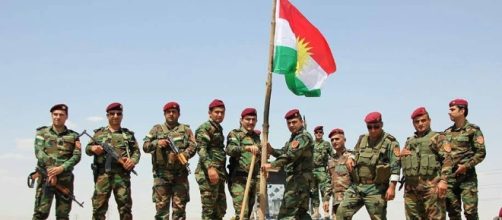The United States goal to weaponize the Kurdish forces for the assault on Raqqa is in full swing. The Kurdistan Regional Government (KRG) has issued a statement that the military reconstruction of Kurdish forces by US, UK, and Germany is going well. The US is arming Kurdish forces of the YPG (Yekîneyên Parastina Gel) which translates to mean the People's Protection Units, to be able to fight ISIS elements in Syria and Northern Iraq.
When will be the assault on ISIS capital Raqqa be made?
With the rate of arms build-up and the training progress of Syrian Kurds, the assault is scheduled in early summer.
The attack will be the first major thrust into ISIS territory and with its success comes a symbolic victory against terrorism. However, US sentiment over the fight against terrorism is not mutually shared with Turkey, which condemns America's support of Syrian Kurds from the start.
The build up of well-armed Kurdish forces in the Syrian-Turkish border causes a major concern for Turkey. This is because the Kurds have a long standing history of rebellion in Turkey. Turkish military have clashed with Kurds again and again and having a well-armed rebellious neighbor is never good news.
How will the US appease Turkey, which is a NATO ally?
White House press secretary Sean Spicer said in his press briefing earlier this week, that the US is committed to preventing additional security risk to its NATO ally - Turkey.
US Defense secretary James Mattis added that the US armed forces are seeking cooperation with Turkey and is committed to working with its military to achieve clear victory against ISIS.
The Defense secretary also stated that the United States will do everything it can to reassure Turkish officials that the ultimate strategy of arming Kurds to end terrorist activity in Syria and Iran will be beneficial for regional allies like Turkey.
Trump policy in the Middle East is teetering towards confrontation with Russia
Due to the sudden approval of missile attacks in Syria, Trump's policy in the Middle East suddenly became unpredictable. Having the ability to order missile attacks on the spot caused concern for Russia and Iran, countries that have vested interest with Assad in Syria.
Though ISIS is a common enemy in the Middle East, Russia, Turkey, Syria and Iran are weary of having a strong US-backed Kurdish force in their midst. It is important to remember that the US have also backed numerous armed groups in the Middle East before, which eventually became the seeds of terror.


